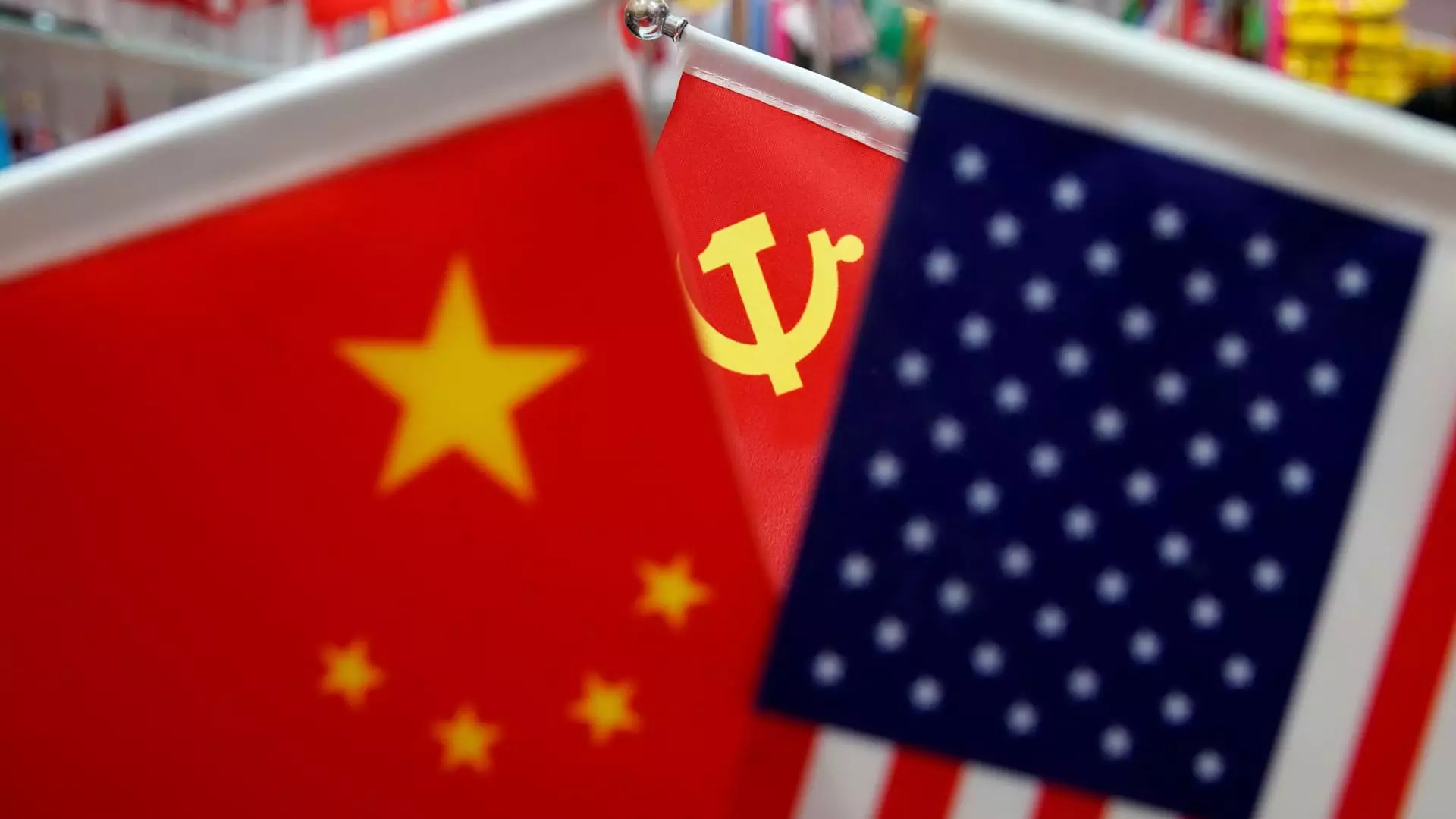In a world characterized by economic interdependence, the concept of bilateral negotiations often strays far from the idealistic narratives we hear in political speeches. President Donald Trump’s recent comments regarding the difficulty of making a deal with Chinese President Xi Jinping epitomize this reality. While Trump claims a fondness for Xi—albeit alongside an acknowledgment of Xi’s toughness—this juxtaposition reveals the fundamental paradox at the heart of U.S.-China relations. The relationship is one marked by both admiration and hostility, where the notion of compromise often seems a distant mirage.
Both nations stand at a crossroads filled with escalating trade tensions, each accusing the other of transgressions that undermine the norms of international commerce. The failure to adhere to the terms of the trade agreement reached in Switzerland in May lay bare the complexities of the situation, with China criticizing the U.S. for its initiatives targeting advanced technology access and the U.S. expressing disappointment over China’s reluctance to ease restrictions on rare earth exports. The foundational trust that is crucial for diplomatic engagement appears to be fraying at the edges.
Domestic Ramifications of International Dynamics
The implications of these diplomatic struggles extend far beyond the political arena, influencing key aspects of daily life in both countries. Trump’s administration’s decision to revoke visas for Chinese students, ostensibly a move in retaliation for trade violations, betrays a disturbing trend fueled by nationalism and xenophobia. This action not only hampers academic exchange but also tarnishes the United States’ image as a bastion of global openness. By sabotaging such exchanges, the U.S. risks creating an environment where fear and suspicion thrive over cooperation and mutual understanding.
Chinese officials, for their part, have expressed their frustrations over what they deem “groundless reasons” for the strain in relations—a sentiment echoed by the Chinese Foreign Minister Wang Yi in his meeting with U.S. Ambassador David Perdue. It bears emphasis that in this diplomatic tug-of-war, billions of dollars—and ultimately millions of individuals’ lives—are at stake. The implications of maintaining or de-escalating tensions extend into critical arenas like global trade policy, technological cooperation, and even climate change, making it imperative that leaders exhibit a modicum of foresight and responsibility.
The Role of Communication
As we stand on the precipice of another potential discussion between Trump and Xi, it is impossible to ignore the paradox that effective communication and dialogue do not always lead to positive outcomes. Despite apparent eagerness on both sides to rekindle discussions—exemplified by the recent posturing from the Chinese leadership—there exists a palpable lack of trust. Analysts suggest that China may only agree to a call if it can be assured that there will be no unexpected maneuvers from the U.S. during their discussions. This cautious approach reflects a broader reluctance to accept accountability or engage in genuine negotiation, rendering the future uncertain.
When these two leaders finally speak—if they do indeed take that step—it is vital that they address the underlying issues head-on rather than resorting to the diplomatic niceties that often characterize such exchanges. Preserving the illusion of partnership while failing to address the elephant in the room could prove detrimental, further entrenching divisions that inhibit any meaningful progress. The stakes have never been higher, as the world observes these interactions with bated breath, acutely aware of their ramifications.
What Lies Ahead?
The road ahead in U.S.-China relations remains fraught with complications. The notion touted by both Presidents that they would like to work together is noble in theory, but without concrete actions that reflect genuine intent, their words hold little weight. For the future to veer toward a path of constructive engagement, both nations must navigate their complex relationship with an understanding that the stakes are not just economic but deeply political and social.
In the end, the relationship between the U.S. and China is emblematic of a broader struggle for balance in an increasingly interconnected world. Unless both sides can recognize the necessity of mutual respect and collaboration—however challenging that may be—our global community faces a precarious future devoid of both growth and stability.

